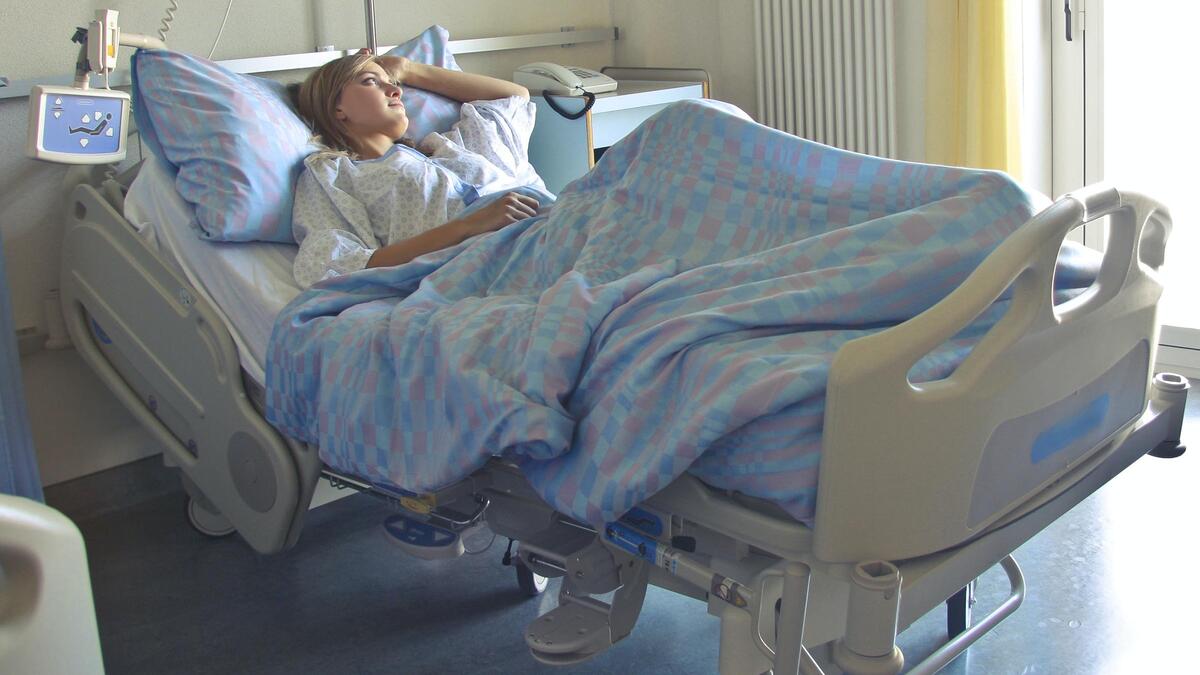Technology that enables a patient to connect to loved ones via video conferencing and an app that gives family members limited access to medical updates were the winning entries in ASU’s first all-virtual hackathon in late April.
ASU students and faculty teamed up with Banner Health’s Innovation Group to design technology solutions that support families of hospitalized COVID-19 patients as they struggle to connect with loved ones when visitation is curtailed.
In a completely online Devils Invent Hackathon, titled Keeping Families Connected, 13 teams of more than 100 students and faculty members came together via Zoom to create communication tools that don’t require patients to use phones or tablets and don’t add to the responsibilities of overburdened hospital staff.
Designed according to Banner Health criteria that requires HIPAA compliance, sanitation standards for both patients and staff and the ability to operate within the hospital’s existing data security systems, the two winning solutions were selected from more than a dozen online presentations.
“This hackathon was centered around two problems that arose from visitor restrictions during COVID-19,” said Nikila Ravi, ventures program director for the Banner Innovation Group. “The first problem, connecting loved ones, was focused on enabling patients to have visual interactions with their loved ones to promote their emotional well-being while they physically heal. The second problem, updating loved ones, addressed challenges to communicate status updates to family and loved ones over the course of a patient’s stay.”
The teams used Zoom for opening and closing events, conferences with mentors from ASU faculty and Banner Health, and team strategy sessions. Scheduled workshops, like “The Art of the Elevator Pitch,” also were offered via Zoom during the 48-hour event.
Canvas, a learning management platform, was used to communicate problem statements, connect team members to each other, announce upcoming sessions and serve as the portal for presentation submissions.
“We had more than 100 students and faculty members come together over a weekend to work on these challenges in what was ASU’s first virtual hackathon,” said Anthony Kuhn, an ASU engineering lecturer who designed and directed the hackathon.
“There was an unprecedented level of turnout, especially since there was no financial incentive and students were still engaged in their classwork,” said Kuhn, who noted that for the first time, ASU Online students were able to participate. “It was a demonstration that students are responsive to events that offer a sense of purpose, despite their own turmoil caused by COVID-19.”
Patient and family video conferencing
Team TechEvolv, which tackled the “Connecting with Loved Ones” challenge, designed a customizable, in-room video system in which the patient can both initiate and receive video calls from family members.
The system also may accommodate video calls between patients and medical staff, including external, consulting physicians.
“It’s a challenging problem to solve given the current, real-world implications of this technology,” said team member Andre Aleksei Ragel, an online global management major. “The mentors were instrumental in helping us figure out the best solution.”
Members of TechEvolv were Ragel; Bodhi England, an electrical engineering major; Xueqi Li, a chemical engineering major; and Jon Relvas, business development director of ASU’s Corporate Engagement and Strategic Partnerships.
Sharing patient status with loved ones
Team United’s project focused on updating loved ones about patient status through an app that provides patient-designated individuals with authorized, content-specific access to information. The patient decides at the time access is granted what information can be shared — lab results, X-rays, status updates and, ultimately, discharge information.
“After reviewing your video, I loved the idea,” said Matthew Anderson, MD, innovation lead at Banner Health. “I don’t think I ever would have thought of what your team came up with. It was a fantastically unique and simple way to make a huge impact.”
Members of Team United were Joseph Larson, a business entrepreneurship major; Kashish Patel, aerospace engineering major; Samantha Ence, a registered nurse working on a bachelor’s degree in health care; Dhrasti Dalal, biomedical engineering; Krishna Koparde, mechanical engineering graduate student; and Thanzima Rahman, biomedical engineering.
Next steps
When current social distancing mandates are lifted, the teams will join members of the Banner Innovation Group at its SkySong center to work out integration details, develop prototypes and create an implementation plan.
“Thank you for your time, energy and for caring about these problems as deeply as we do,” Christy Anderson, executive director of Banner Innovation Group, said during the closing event. “These are real problems with a real sense of urgency. Your work will be incredibly beneficial for patients and caregivers.
“You took online innovation to a whole new level.”
Ravi said the Banner Innovation Group looks forward to working with the teams as they assess the viability of the proposed concepts, refine the designs and build the solutions.
“Our team was excited to partner with the ASU team to leverage both their expertise hosting hackathons as well as the innovation and ingenuity of the ASU community to solve real and impactful challenges,” Ravi said.
Top photo courtesy of Pexels.com
More Science and technology

Stuck at the airport and we love it #not
Airports don’t bring out the best in people.Ten years ago, Ashwin Rajadesingan was traveling and had that thought. Today, he is an assistant professor at the University of Texas at Austin, but back…

ASU in position to accelerate collaboration between space, semiconductor industries
More than 200 academic, business and government leaders in the space industry converged in Tempe March 19–20 for the third annual Arizona Space Summit, a statewide effort designed to elevate…

A spectacular celestial event: Nova explosion in Northern Crown constellation expected within 18 months
Within the next year to 18 months, stargazers around the world will witness a dazzling celestial event as a “new” star appears in the constellation Corona Borealis, also known as the Northern Crown.…


